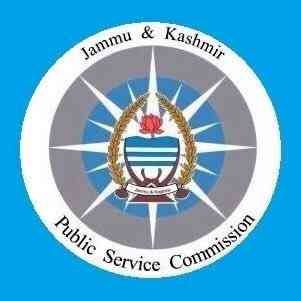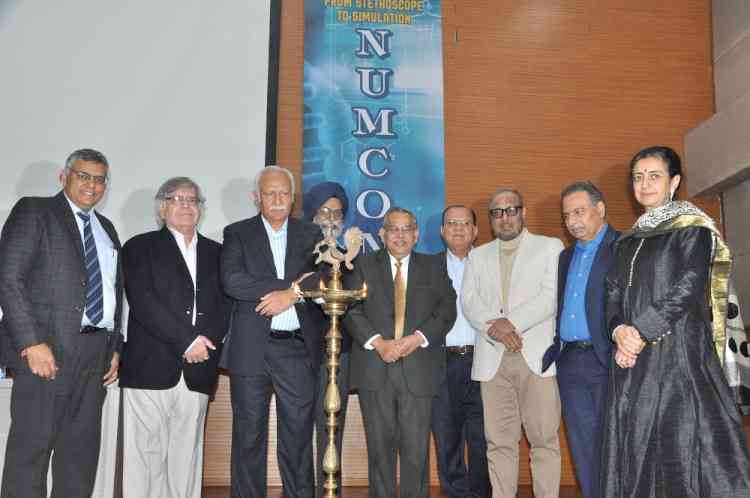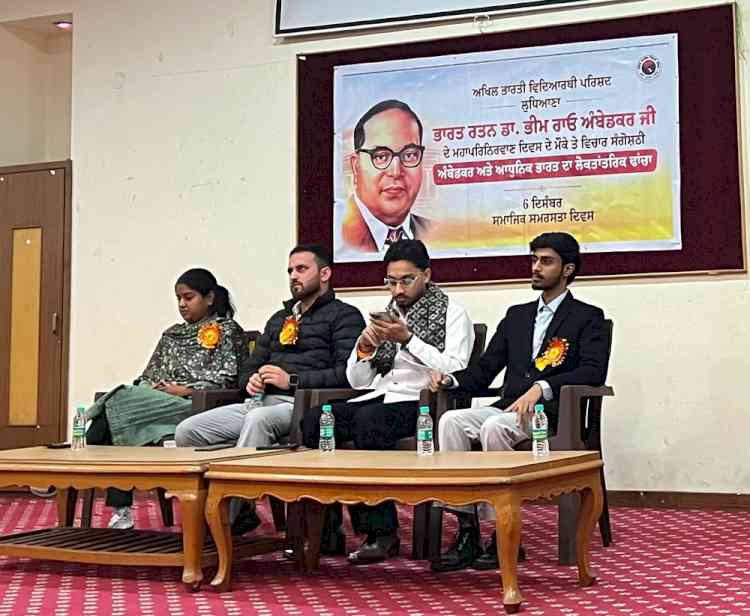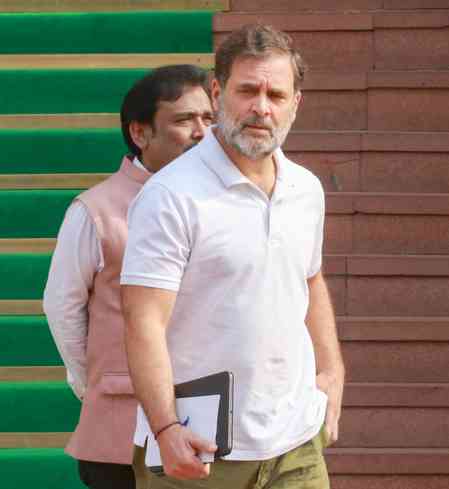PU & PGI released awareness booklet 'Unmasking the Plastic Pollution'
An awareness booklet on 'Unmasking the Plastic Pollution- A guide about plastic pollution and how you can limit your exposure' was released by Prof. Adarsh Pal Vig, Chairman, Punjab Pollution Control Board, Punjab, along with S. Narayana, IFS, Haryana; Karunesh Garg, Member Secretary, Punjab Pollution Control Board, Punjab; Gurnam Singh, Regional Director, Central Pollution Control Board, New Delhi, and Arulrajan P, IFS and Member Secretary, Chandigarh Pollution Control Committee, Chandigarh.
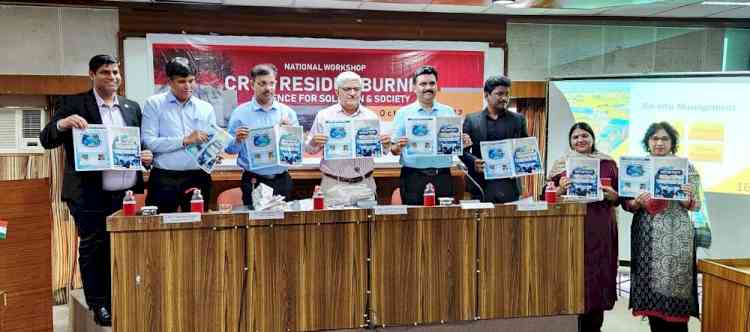
Chandigarh, October 20, 2022: An awareness booklet on 'Unmasking the Plastic Pollution- A guide about plastic pollution and how you can limit your exposure' was released by Prof. Adarsh Pal Vig, Chairman, Punjab Pollution Control Board, Punjab, along with S. Narayana, IFS, Haryana; Karunesh Garg, Member Secretary, Punjab Pollution Control Board, Punjab; Gurnam Singh, Regional Director, Central Pollution Control Board, New Delhi, and Arulrajan P, IFS and Member Secretary, Chandigarh Pollution Control Committee, Chandigarh.
The awareness booklet is conceptualized and designed by Dr. Suman Mor and Prof. Ravindra Khaiwal from Panjab University, Chandigarh and the Post Graduate Institute of Medical Education and Research, Chandigarh. During the release, Prof. Adarsh Pal Vig highlighted that festival season is around and we must sidestep the banned single-use plastic items and need to adopt sustainable approaches in our daily life to minimize environmental pollution.
The booklet has a written foreword by Banwari Lal Purohit, The Governor of Punjab & Administrator of Chandigarh, who appreciated the author's efforts and mentioned using single-use plastic products in daily life has led to enormous waste generation growth. He added that India had banned specific single-use plastic items from 1st July 2022, which have low utility but cause significant environmental damage. In his written message, he specified that these products include plastic items such as plates, cups, glasses, cutlery items, silverware, straws, and stirrers, as well as films used for wrapping or packing and polyvinyl chloride banners with a thickness of less than 100 microns. Shri. Purohit also mentioned that banning single-use plastic will harbor innovation to reduce our carbon footprints, specifically by developing plant-based, rapidly biodegradable products.
Dr. Suman Mor, Department of Environment Science, Panjab University, Chandigarh, emphasized that this booklet aims to educate readers of all ages about the environment and human health risks associated with plastic pollution. She mentioned that plastic is not the issue as it depends on how we use and dispose of it. Hence she added that we must be considerably more conscientious in using plastic materials to improve the earth's sustainability.
Dr. Ravindra Khaiwal, Professor of Environmental Health, Department of Community Medicine & School of Public Health, PGIMER, Chandigarh, stressed that microplastics had made their way into our food chain. He added that a recent study showing the presence of microplastics in human blood is alarming considering public health risks. Dr. Khaiwal highlighted that exposure to plastic and its by-products had been linked to various health issues, including endocrine dysregulation, cancer, obesity, diabetes, and hyperactivity.
Both authors mentioned that this work is part of the 'Community Environmental Empowerment Program (CEEP)' project funded by the Ministry of Environment, Forest & Climate Change, New Delhi, India. They mentioned that the pictorial booklet provides judicious information about the types of plastics, microplastics, and single-use plastics items (SUPs), including how plastic waste affects the ecology, wildlife, and human health. The pictorial booklet also includes information about the products being banned and what is allowed, including the sustainable alternatives to banned plastics. Further, it focuses on the penalties on manufacturers, producers, stockers/distributors, retailers and street vendors for non-compliance with the ban on single-use plastic items. The major focus of the booklet is to teach "how you can minimize your plastic waste" adhering to the rules laid by Government.
The authors specifically acknowledged the support from Prof. Raj Kumar, Vice-Chancellor, Panjab University and Prof. Vivek Lal, Director, PGIMER, Chandigarh. The booklet can be downloaded in Hindi or English from the website - care4cleanair.com/awarnessmaterial or from their institutional websites.


 City Air News
City Air News 
